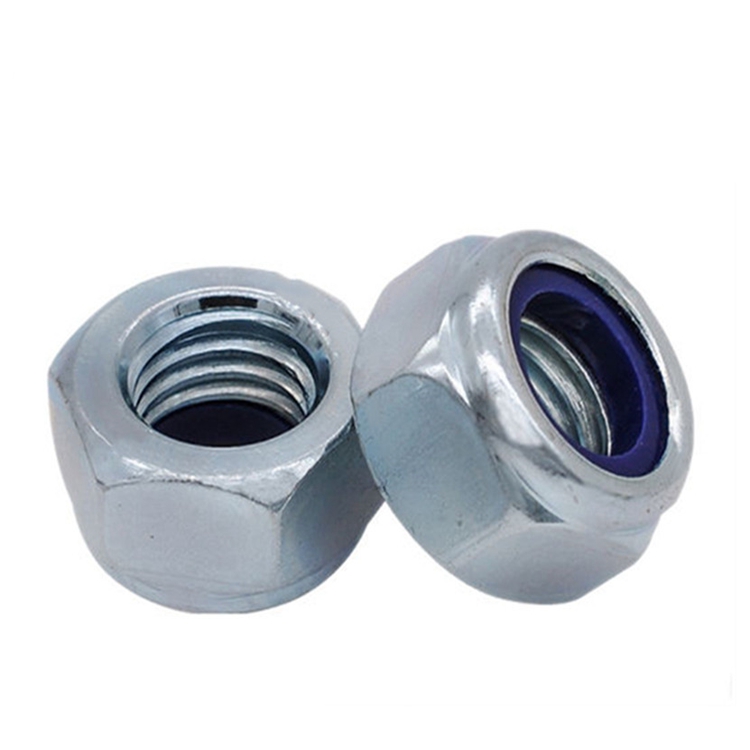High-Strength Stud Bolt B8 for Enhanced Structural Integrity
Dec . 01, 2024 11:49 Back to list
High-Strength Stud Bolt B8 for Enhanced Structural Integrity
Understanding Stud Bolt B8 An Essential Component in Industrial Applications
Stud bolts are critical fasteners utilized across various industries, including construction, manufacturing, and oil and gas. Among the numerous grades and types of stud bolts available, the B8 stud bolt is particularly noteworthy due to its unique properties and wide range of applications. This article will shed light on the specifications, advantages, and typical uses of B8 stud bolts.
What is a Stud Bolt?
A stud bolt is a rod-like fastener, threaded on both ends, designed to be used in conjunction with nuts or other threaded components. It does not possess a permanent head like traditional bolts. This design allows for a more adjustable assembly, making stud bolts a preferred choice in applications where frequent disassembly and reassembly are necessary.
Specifications of B8 Stud Bolt
The B8 designation refers to a specific grade of stainless steel stud bolts, primarily adhering to ASTM A193 standards. B8 stud bolts are made from an austenitic stainless steel alloy, specifically type 304 or 316. These grades confer the following properties
1. Corrosion Resistance The primary advantage of B8 stud bolts is their excellent corrosion resistance, thanks to the high chromium and nickel content in the steel. This makes them suitable for use in harsh environments where exposure to moisture, chemicals, or saltwater is prevalent.
2. High-Temperature Stability B8 studs can withstand elevated temperatures, maintaining strength and integrity when exposed to extreme heat. This quality is crucial for applications in industries such as oil refining and power generation, where thermal stress is common.
3. Mechanical Properties B8 stud bolts exhibit strong tensile and yield strength, making them capable of withstanding considerable loads without deformation. Typically, they possess a yield strength of around 30,000 psi and a tensile strength of more than 75,000 psi.
stud bolt b8

4. Versatility The austenitic structure of B8 stud bolts allows for excellent formability and weldability, which enhances their applicability across a range of projects.
Applications of B8 Stud Bolts
Given their beneficial properties, B8 stud bolts find application in various sectors
- Oil and Gas Industry In the oil and gas industry, B8 stud bolts are often used in pressure vessels, piping, and flanges. Their ability to withstand corrosive environments makes them ideal for offshore platforms and refineries where exposed polar or saline conditions can cause failure in lesser materials.
- Chemical Manufacturing B8 stud bolts are employed in chemical processing plants where both high temperatures and corrosive chemicals are present. Their durability and reliability ensure the structural integrity of essential components.
- Power Generation From turbines to heat exchangers, B8 stud bolts serve integral functions in power generation facilities. Their resilience to thermal cyclic loading is critical in maintaining operational efficiency and safety.
- Construction In structural applications, B8 stud bolts are often used to connect metal components, ensuring strong and lasting joints that withstand environmental stresses.
Conclusion
In summary, B8 stud bolts represent an important category of fastening solutions in various industrial applications. Their unique characteristics, including corrosion resistance, high-temperature stability, and mechanical strength, make them indispensable in challenging environments. As industries continue to evolve and face new challenges, the demand for reliable and robust fastening systems like B8 stud bolts will undoubtedly grow, reinforcing their critical role in modern engineering solutions.
Latest news
-
High-Quality Panel Stud Bolt Reliable Panel Stud Bolt Factory & Suppliers
NewsJul.08,2025
-
High-Precision Fine Thread Locknuts Manufacturer & Supplier Custom Solutions
NewsJul.08,2025
-
PH Imperial Stud Bolt – High Strength Fasteners from Leading Supplier & Factory
NewsJul.07,2025
-
High-Quality Allen Wrench Bolts Leading Factory, Company & Suppliers
NewsJul.07,2025
-
Wholesale Ball Stud Bolt - High Quality Supplier & Factory Price Reliable Wholesale Ball Stud Bolt Company
NewsJul.06,2025
-
High-Strength Alloy Bolts Manufacturer & Supplier Quality Alloy Fasteners Factory
NewsJul.06,2025
